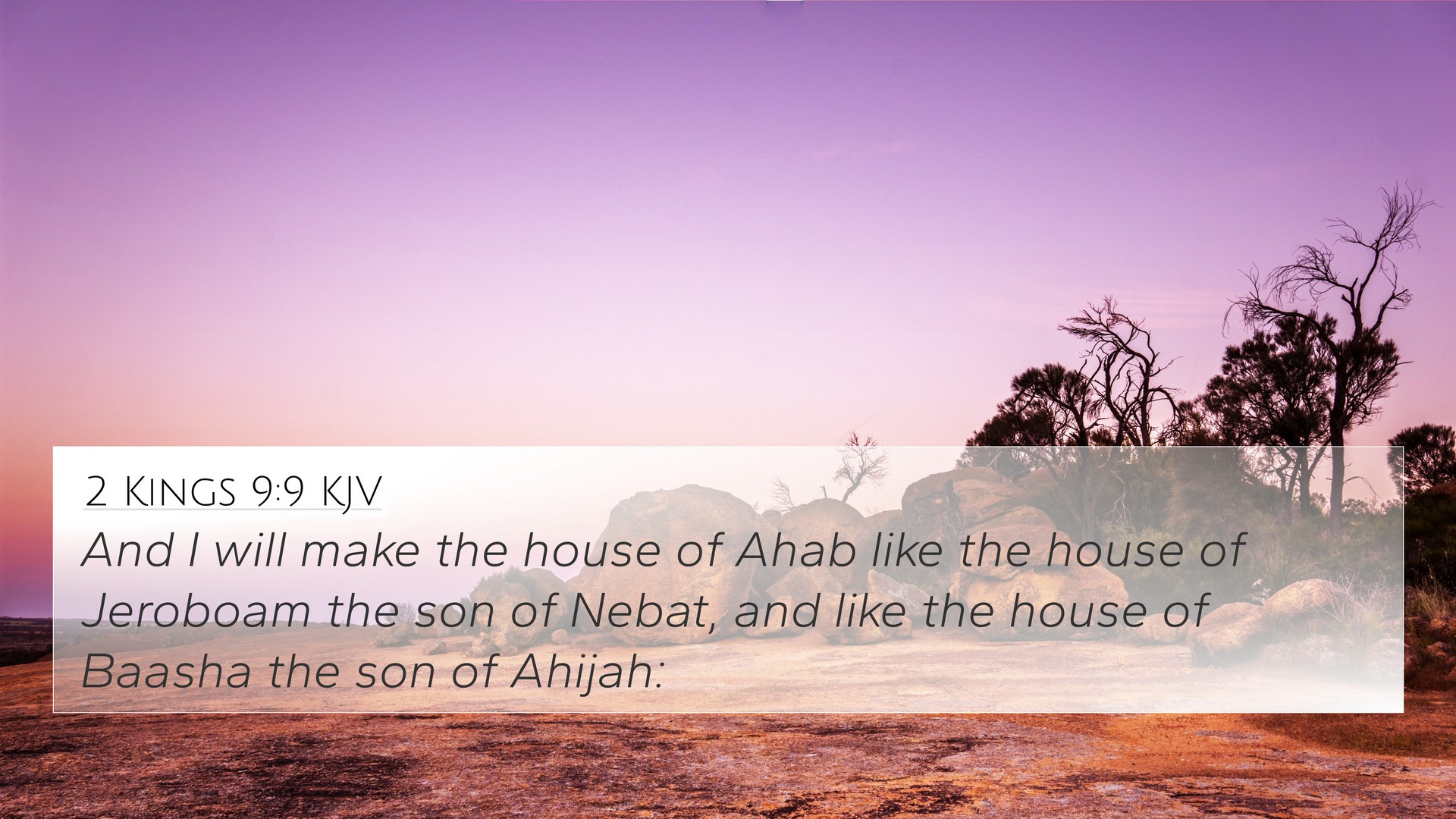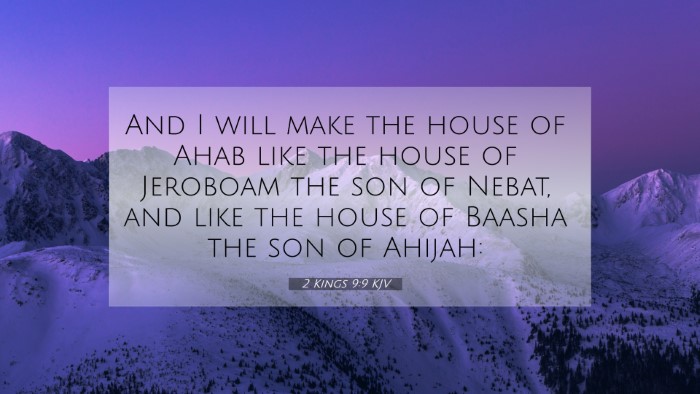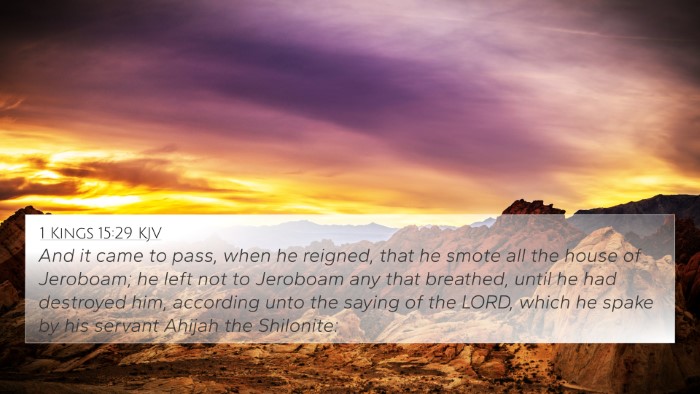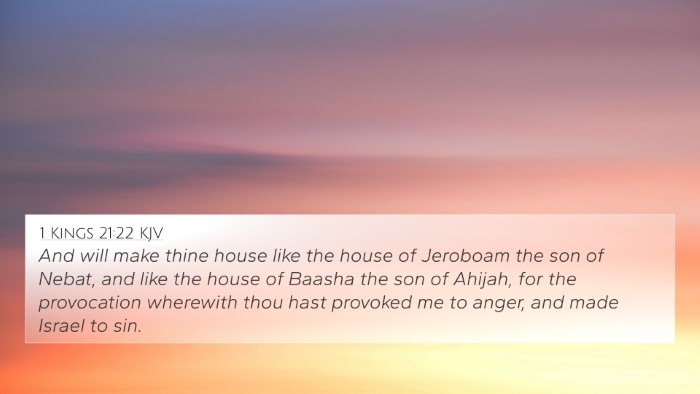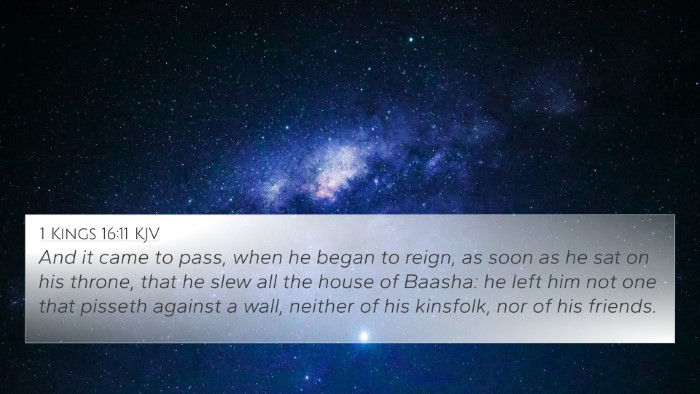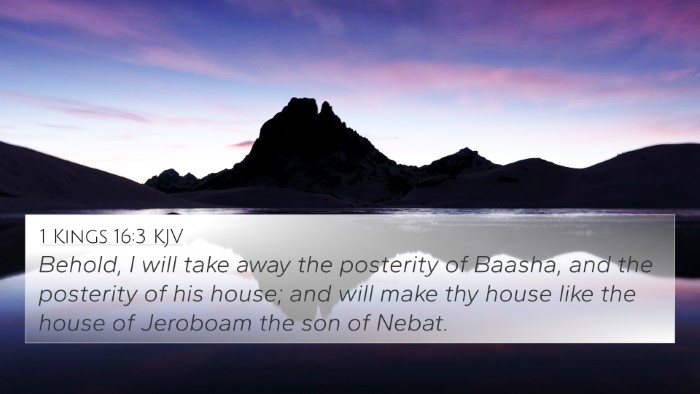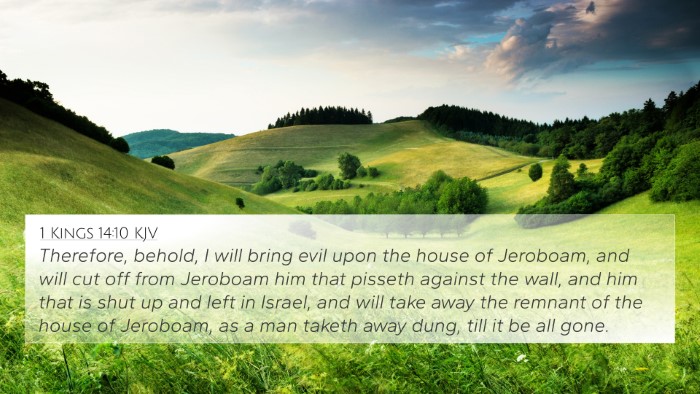Understanding 2 Kings 9:9
The verse of 2 Kings 9:9 states, "And I will make the house of Ahab like the house of Jeroboam the son of Nebat, and like the house of Baasha the son of Ahijah." This verse serves a significant role in biblical narratives, particularly regarding God’s judgment on the idolatrous practices of Ahab’s lineage and the severity of divine retribution.
Context of the Verse
This verse comes during a crucial moment in Israel's history. Jehu has been anointed as king of Israel, tasked with executing God's judgment on the corrupt house of Ahab. The prophetic declaration illustrates God's intention to eradicate Ahab’s dynasty completely, drawing parallels to the fates of Jeroboam and Baasha, previous rulers who also faced judgment for their transgressions.
Commentary Insights
-
Matthew Henry: Henry emphasizes God’s judgment as he reflects on the sinfulness that Ahab brought upon Israel through idolatry and murder. He notes that Jehu's rise is part of God fulfilling His word against Ahab’s house due to its egregious sins.
-
Albert Barnes: Barnes points out the symbolic nature of Ahab's house being compared to that of Jeroboam and Baasha. Both of these figures are reminders of the high cost of sin and the consequences that befall those who lead Israel away from God.
-
Adam Clarke: Clarke elaborates on the significance of this verse by highlighting that the complete destruction of Ahab’s household serves as a clear warning of God’s righteous judgment. He connects this to the overarching themes of justice and divine sovereignty in the Biblical narrative.
Thematic Connections
The themes present in 2 Kings 9:9 resonate throughout scripture, emphasizing God's sovereignty, justice, and the consequences of idolatry. This verse serves as a reminder of the severe repercussions of leading God’s people astray.
Cross References
Below are some verses that can be cross-referenced with 2 Kings 9:9, demonstrating the interconnectedness and consistency of biblical themes:
- 1 Kings 16:2-3: Discusses God’s condemnation of Jeroboam’s sin, paralleling the fate of Ahab.
- 1 Kings 21:21: Declares God's judgment against Ahab for his actions, reinforcing the themes of retribution.
- 2 Kings 10:11: Illustrates the execution of God’s judgment as Jehu proceeds to fulfill the prophecy against Ahab’s descendants.
- 2 Kings 17:21-22: Provides context about Israel’s continued idolatry and its consequences.
- Hosea 1:4: References the sins of Jeroboam that led Israel astray, linking the themes of sin and punishment across generations.
- Amos 6:10-12: Reflects God's displeasure with Israel’s leaders, warning them of their impending doom.
- Deuteronomy 13:6-10: Details the command against false prophets and idolatrous leaders, which Ahab represents.
- Revelation 21:8: Illustrates the fate of the wicked, drawing a line from the Old Testament consequences to the ultimate fate laid out in New Testament theology.
- Galatians 6:7: States the principle of reaping what one sows, applicable to both Ahab and the wider narrative around sin.
- Isaiah 34:8: Speaks of the Lord’s vengeance, linking the prophetic themes seen in 2 Kings 9:9 to a broader divine justice theme.
Exploring Connections through Cross-Referencing
Using tools for Bible cross-referencing can deepen the understanding of how 2 Kings 9:9 connects with other scriptures. A Bible concordance or a Bible cross-reference guide can help identify these thematic Bible verse connections, aiding in a comprehensive Bible study.
Conclusion
In summary, 2 Kings 9:9 serves as an integral part of the Biblical narrative that emphasizes God's omnipotent justice. The connections between this verse and others highlight a pervasive theme of divine retribution for leading Israel into sin. By engaging in cross-referencing and comparative Bible verse analysis, one can appreciate the depth and consistency of the Biblical message across both the Old and New Testaments.
